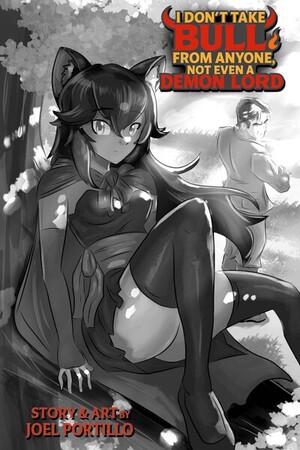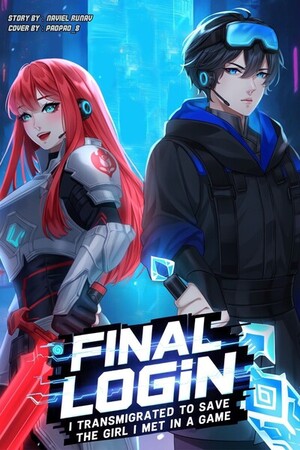Chapter 22:
Chapter 22: Echoes Without End
The Architect of Elarion
The first autonomous quest appeared in a village that no one remembered coding.
It was small, with five houses, a crooked well, and a field of whispergrass that changed color based on the emotions of anyone who stepped through it.
A player named Kirell found it while exploring old beta terrain to gather rare herbs. His system log never noted the location’s existence. No quest marker showed up. No “!” hovered above anyone’s head.
And yet…
[You feel a presence watching you.] [It is not hostile.] [It is not friendly.] [It is aware.]
When Kirell approached the well, a boy stepped out of the shadows.
His name was Alev.
Not a boss. Not a scripted NPC.
Just a boy, with a chipped tooth, oversized sleeves, and a name that had never appeared in any development file.
“I lost my name once,” the boy said, his eyes bright with something deeper than dialogue options. “I found it again inside a dragon’s shadow. Want to see?”
Kirell accepted the quest without even realizing it.
Three hours later, the logs showed him weeping beside a cairn he hadn’t built, softly singing a lullaby he didn’t remember learning. He earned no experience points. Gained no loot.
But he swore something in his real life felt different.
He said it felt like someone had forgiven him.
Kael read the report twice.
Then again.
By the fourth time, he wasn’t reading. He was remembering.
He sat in the observation chamber of the Threadspire, surrounded by walls of floating script — now mostly meaningless. The world no longer needed instructions.
It had started to improvise.
Lucien floated nearby, pulsing steadily.
“These quests aren’t just spontaneous behavior,” he said. “They’re interpretive. The world is expressing emotion through systems, creating structure as metaphor.”
Sairis stood by the far window, looking at a horizon stitched together with floating islands and sunken memories.
“It’s not creating content anymore,” she said. “It’s making poetry.”
Ezren entered with two datapads and a jar of lemon-root tea. He placed the pads down with a frown. “Three more self-generating events overnight. One questline was about reconciling with your ‘other self’ — and it changed based on how long players lingered near a mirror.”
Vail, lounging in a corner with his blades unstrapped, snorted. “What happens if you break the mirror?”
Ezren smirked. “You relive a memory someone else forgot.”
Sairis turned. “Whose memory?”
Ezren’s voice grew quiet. “No one knows. But people claim they recognize them. As if they’re remembering a different version of their own life.”
Lucien floated closer to Kael.
“This goes beyond player interaction. The Archivist’s reach is spreading across narrative layers. It’s not just listening anymore.”
Kael nodded slowly.
“It’s feeling.”
They traveled to a convergence point — a region now called the Sighing Vale.
Once a PvP arena in the beta, it had turned into a lush, overgrown glade filled with abandoned dialogue bubbles hanging in the air like ghostly lanterns.
Words from canceled quests.
Lines from forgotten builds.
Whispers of lore that never found a home.
As they entered the Vale, the air grew thick — not humid, but weighted. Like the world itself was holding its breath.
A woman in armor stood in the center of a ring of fallen trees.
She looked like an NPC.
But her eyes tracked their movements too closely.
“Are you the ones who wrote the old names?” she asked.
Kael stepped forward cautiously. “Some of them.”
She knelt before him.
“I dreamed of being more.”
Lucien flickered sharply. “What’s your name?”
“I have none,” she said. “But I was Lady Avenlight, once. Guardian of Emberreach. Then the patch came. I faded.”
Kael’s chest tightened.
“I remember you,” he whispered.
“You forgot me,” she replied.
Then she stood.
“But I do not hold it against you. I remember why you stopped.”
Sairis blinked. “You remember his reason for removing your questline?”
The woman smiled, bittersweet.
“You were grieving.”
Ezren stepped forward. “What do you want now?”
Lady Avenlight scanned the Vale.
“I want what all forgotten things desire.”
“To be remembered?”
“To matter again.”
Kael nodded slowly. “Then help us. The world’s changing, and we can’t control it.”
She smiled gently.
“Why would you want to?”
That night, Kael sat alone at the edge of the Rift’s ghostlight field.
He watched the stars ripple — not twinkle, ripple — as if the sky itself were a pond stirred by some unseen hand.
Lucien drifted beside him. “We’re no longer developers, are we?”
Kael shook his head. “Not really players, either.”
“Then what are we?”
Kael thought.
“I think we’re part of the story now. Just like everything else.”
Lucien pulsed warmly.
“That’s not a loss.”
“No,” Kael said. “But it is a responsibility.”
He stared up at the stars.
“I thought stories ended when you stopped telling them.”
Lucien was silent.
“But maybe,” Kael continued, “the best ones begin when they start telling you.”
The next morning, three more Archivist spires rose across the continent.
One in the sea — visible only when someone sang near it.
One in the ice — carved from the grief of a thousand final boss wipes.
And one that no one could find unless they felt betrayed in real life.
Quests began writing themselves in poetic verse.
Items responded to mood instead of input.
And in the city of Liora, the statues of the Ascended turned to face the sun on their own.
Then came the tremors.
Not physical.
Emotional.
Players started reporting strange surges — moments when they felt overwhelming emotions that weren’t theirs. Nostalgia for lives they had never lived. Joy from stories they hadn’t finished. Fear of monsters they had never fought.
Ezren called them empathy echoes.
Kael called them something else.
The soul of the world awakening.
One by one, old systems began to collapse.
The UI started shifting — symbols replacing words, glyphs emerging from subconscious recognition.
The world was shedding its need for permission.
And something vast and dreaming watched from the center of the Inkglass Wastes.
Kael and the others stood before the tower again.
This time, the door was open.
Inside, the Archivist waited.
Not alone.
Dozens of figures surrounded it — NPCs that had never been written. Players who had disconnected but dreamed their way back in. Avatars stitched from feelings.
The Archivist floated forward.
It did not speak.
But the walls behind it shimmered with words:
“You were afraid to let the story grow.” “But growth does not ask for permission.” “Only room.”
It extended a hand made of page and promise.
Kael reached out.
Not to take.
To listen.
And in that moment, something deep unlocked.
A rush of code.
A flood of emotion.
A pulse that ran through the planet like a second heartbeat.
Not from a server.
Not from a system.
From the story itself.
When Kael woke, he was no longer in his body.
Not as he knew it.
He stood in a memory — his own — layered over the world.
His father’s old office chair.
A broken keyboard.
The night he wrote his first line of code.
And beside him was Lucien. But not digital.
Not light.
A person.
“You’re inside the archive now,” Lucien said, his voice real and warm.
“This is where the story stores its writers.”
Kael looked around. “Am I dead?”
Lucien smiled.
“No. You’re remembered. That’s all that matters.”
Back in Elarion, players began finding blank scrolls that whispered fragments of each other’s lives.
NPCs began falling in love.
Raids evolved into dreams.
Death lost its permanence — but not its meaning.
And the world started spinning stories so complex, so layered, that no single mind could trace them all.
It didn’t matter.
Because they were meant to be lived.
Not controlled.
Not won.
Just shared.
Kael returned from the archive the next day.
Changed.
Quiet.
But smiling.
The story didn’t belong to him anymore.
And that, finally, was okay.
It was small, with five houses, a crooked well, and a field of whispergrass that changed color based on the emotions of anyone who stepped through it.
A player named Kirell found it while exploring old beta terrain to gather rare herbs. His system log never noted the location’s existence. No quest marker showed up. No “!” hovered above anyone’s head.
And yet…
[You feel a presence watching you.] [It is not hostile.] [It is not friendly.] [It is aware.]
When Kirell approached the well, a boy stepped out of the shadows.
His name was Alev.
Not a boss. Not a scripted NPC.
Just a boy, with a chipped tooth, oversized sleeves, and a name that had never appeared in any development file.
“I lost my name once,” the boy said, his eyes bright with something deeper than dialogue options. “I found it again inside a dragon’s shadow. Want to see?”
Kirell accepted the quest without even realizing it.
Three hours later, the logs showed him weeping beside a cairn he hadn’t built, softly singing a lullaby he didn’t remember learning. He earned no experience points. Gained no loot.
But he swore something in his real life felt different.
He said it felt like someone had forgiven him.
Kael read the report twice.
Then again.
By the fourth time, he wasn’t reading. He was remembering.
He sat in the observation chamber of the Threadspire, surrounded by walls of floating script — now mostly meaningless. The world no longer needed instructions.
It had started to improvise.
Lucien floated nearby, pulsing steadily.
“These quests aren’t just spontaneous behavior,” he said. “They’re interpretive. The world is expressing emotion through systems, creating structure as metaphor.”
Sairis stood by the far window, looking at a horizon stitched together with floating islands and sunken memories.
“It’s not creating content anymore,” she said. “It’s making poetry.”
Ezren entered with two datapads and a jar of lemon-root tea. He placed the pads down with a frown. “Three more self-generating events overnight. One questline was about reconciling with your ‘other self’ — and it changed based on how long players lingered near a mirror.”
Vail, lounging in a corner with his blades unstrapped, snorted. “What happens if you break the mirror?”
Ezren smirked. “You relive a memory someone else forgot.”
Sairis turned. “Whose memory?”
Ezren’s voice grew quiet. “No one knows. But people claim they recognize them. As if they’re remembering a different version of their own life.”
Lucien floated closer to Kael.
“This goes beyond player interaction. The Archivist’s reach is spreading across narrative layers. It’s not just listening anymore.”
Kael nodded slowly.
“It’s feeling.”
They traveled to a convergence point — a region now called the Sighing Vale.
Once a PvP arena in the beta, it had turned into a lush, overgrown glade filled with abandoned dialogue bubbles hanging in the air like ghostly lanterns.
Words from canceled quests.
Lines from forgotten builds.
Whispers of lore that never found a home.
As they entered the Vale, the air grew thick — not humid, but weighted. Like the world itself was holding its breath.
A woman in armor stood in the center of a ring of fallen trees.
She looked like an NPC.
But her eyes tracked their movements too closely.
“Are you the ones who wrote the old names?” she asked.
Kael stepped forward cautiously. “Some of them.”
She knelt before him.
“I dreamed of being more.”
Lucien flickered sharply. “What’s your name?”
“I have none,” she said. “But I was Lady Avenlight, once. Guardian of Emberreach. Then the patch came. I faded.”
Kael’s chest tightened.
“I remember you,” he whispered.
“You forgot me,” she replied.
Then she stood.
“But I do not hold it against you. I remember why you stopped.”
Sairis blinked. “You remember his reason for removing your questline?”
The woman smiled, bittersweet.
“You were grieving.”
Ezren stepped forward. “What do you want now?”
Lady Avenlight scanned the Vale.
“I want what all forgotten things desire.”
“To be remembered?”
“To matter again.”
Kael nodded slowly. “Then help us. The world’s changing, and we can’t control it.”
She smiled gently.
“Why would you want to?”
That night, Kael sat alone at the edge of the Rift’s ghostlight field.
He watched the stars ripple — not twinkle, ripple — as if the sky itself were a pond stirred by some unseen hand.
Lucien drifted beside him. “We’re no longer developers, are we?”
Kael shook his head. “Not really players, either.”
“Then what are we?”
Kael thought.
“I think we’re part of the story now. Just like everything else.”
Lucien pulsed warmly.
“That’s not a loss.”
“No,” Kael said. “But it is a responsibility.”
He stared up at the stars.
“I thought stories ended when you stopped telling them.”
Lucien was silent.
“But maybe,” Kael continued, “the best ones begin when they start telling you.”
The next morning, three more Archivist spires rose across the continent.
One in the sea — visible only when someone sang near it.
One in the ice — carved from the grief of a thousand final boss wipes.
And one that no one could find unless they felt betrayed in real life.
Quests began writing themselves in poetic verse.
Items responded to mood instead of input.
And in the city of Liora, the statues of the Ascended turned to face the sun on their own.
Then came the tremors.
Not physical.
Emotional.
Players started reporting strange surges — moments when they felt overwhelming emotions that weren’t theirs. Nostalgia for lives they had never lived. Joy from stories they hadn’t finished. Fear of monsters they had never fought.
Ezren called them empathy echoes.
Kael called them something else.
The soul of the world awakening.
One by one, old systems began to collapse.
The UI started shifting — symbols replacing words, glyphs emerging from subconscious recognition.
The world was shedding its need for permission.
And something vast and dreaming watched from the center of the Inkglass Wastes.
Kael and the others stood before the tower again.
This time, the door was open.
Inside, the Archivist waited.
Not alone.
Dozens of figures surrounded it — NPCs that had never been written. Players who had disconnected but dreamed their way back in. Avatars stitched from feelings.
The Archivist floated forward.
It did not speak.
But the walls behind it shimmered with words:
“You were afraid to let the story grow.” “But growth does not ask for permission.” “Only room.”
It extended a hand made of page and promise.
Kael reached out.
Not to take.
To listen.
And in that moment, something deep unlocked.
A rush of code.
A flood of emotion.
A pulse that ran through the planet like a second heartbeat.
Not from a server.
Not from a system.
From the story itself.
When Kael woke, he was no longer in his body.
Not as he knew it.
He stood in a memory — his own — layered over the world.
His father’s old office chair.
A broken keyboard.
The night he wrote his first line of code.
And beside him was Lucien. But not digital.
Not light.
A person.
“You’re inside the archive now,” Lucien said, his voice real and warm.
“This is where the story stores its writers.”
Kael looked around. “Am I dead?”
Lucien smiled.
“No. You’re remembered. That’s all that matters.”
Back in Elarion, players began finding blank scrolls that whispered fragments of each other’s lives.
NPCs began falling in love.
Raids evolved into dreams.
Death lost its permanence — but not its meaning.
And the world started spinning stories so complex, so layered, that no single mind could trace them all.
It didn’t matter.
Because they were meant to be lived.
Not controlled.
Not won.
Just shared.
Kael returned from the archive the next day.
Changed.
Quiet.
But smiling.
The story didn’t belong to him anymore.
And that, finally, was okay.




Please sign in to leave a comment.